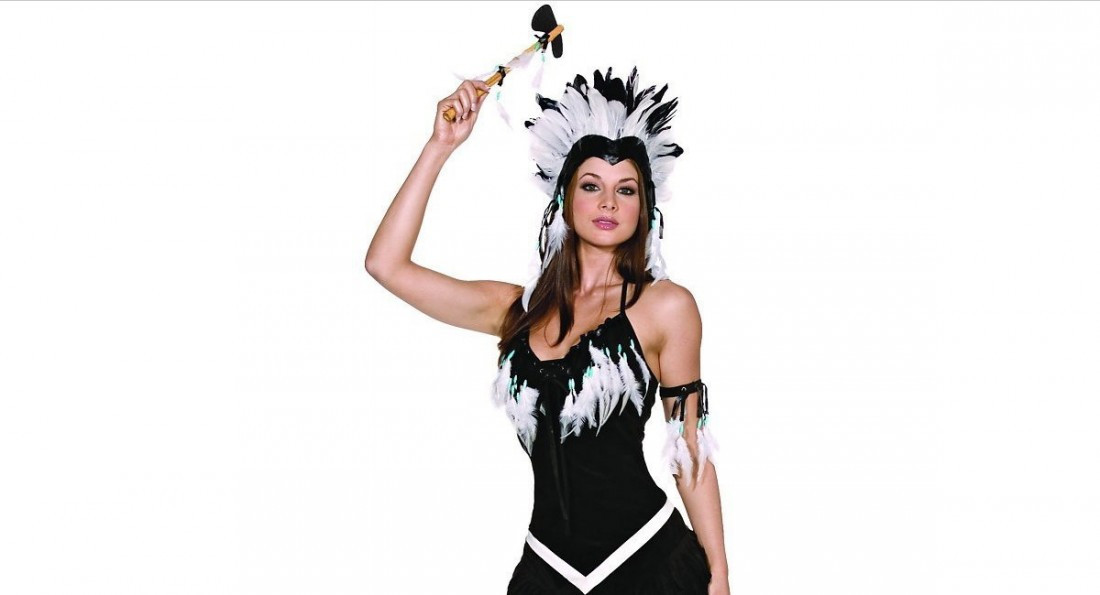The commodification of colonial injustices
How a history of cultural abuse is being exploited for cheap Halloween thrills
The Halloween season has descended upon us. For most, this is emblematic of cheap fall decorum – orange and black tinsel, Jack-O-Lanterns, and more confectionaries than is recommended by any physician. Adults too are invited to partake in the festivities, usually through means of drunken debauchery at house parties and bars. This is all innocent enough, of course, and with each passing year costume stores conceive innovative wares to peddle to the public along with the insipid favourites; typically cheaply made garments that bastardize classical fairy tales and beloved fictional characters. Nothing particularly scurrilous, and it is of course in good fun.
This year, however, as I was probing the stores for my own costume, I happened upon something that required a double-take, as I couldn’t quite believe what I’d seen. There on the wall, nestled amongst the sexy nurses and the Katy Perry dresses was a costume featuring what was meant to be a sexualized version of traditional Aboriginal accoutrement labelled as, “Reservation Royalty”. I felt a little sick.
For years this has been the status quo for Halloween stores, and the costumes are almost always worn ironically by white women attempting to impersonate a “sexy Pocahontas”, whatever that even means. Never before had I seen the word “reservation” used so out of context, so loosely, and with not a modicum of awareness (or respect) for the corollary it could elicit. The phrase “Reservation Royalty” seems to exude an inept oxymoron within itself, one which has obviously deviated the consciousness of the executives who approved it for sale. Next, I supposed, will come “Concentration Camp Queen”, or perhaps “Ghetto Girl”. I hope I have not given them any ideas.
I don’t know what the reaction would be if it were shown to an Aboriginal person, though I imagine the perceived humour would be entirely lost on them as it is on myself. The tasteless use of reservation is so politically incorrect, and the discordance of reservation and royalty – as though Aboriginal women who live on reserves enjoy life as luxuriant aristocrats among their fellow reservists. It is a case of cultural and historical ignorance. The label is an apotheosis of poverty, misfortune and centuries of cultural abuse, while deflecting it into a fallacious identity of sexualized tribal leadership (feigned as royalty, a distinctly European nomenclature at that). If they were being sardonic about the oxymoron, it is the utmost failure, and leaves an acerbic taste in one’s mouth. It is nothing short of disgraceful to all Aboriginal peoples.
The benighted executives at Spirit Halloween should arrange to take a trip from New Jersey to a few blight-permeated reservations as an informational experience. I doubt they would return with the same notions of what constitutes Aboriginal livelihoods in those areas.
Inevitably, the most sordid part of it is that a company run mostly by white people has made a profit through the exploitation of an entire people. This sort of blatant historical ignorance must be weeded out in order to foster a better relationship between different cultures. In the interim, it is both embarrassing and a poor gesture from us to them. Hopefully the executives at costume stores will come to see this. In the mean time, perhaps it is best to make a costume at home this year.
Shelby is a student of Rhetoric and Communications at the University of Winnipeg. She believes in unicorns and chocolate.
Published in Volume 68, Number 9 of The Uniter (October 30, 2013)







